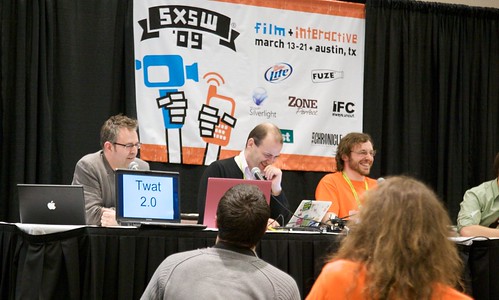New Public Thinkers: My Nominations
/My good friend and intellectual scratching post Dougald Hine has started a conversation here to identify the next generation of public thinkers, and has invited me to be part of it. Here's what Dougald says:
"Radio 3 is currently looking for "a new generation of public intellectuals". You can apply here - except that to be eligible, you must be studying or working inside a university. Now, call me self-interested, but by this criterion, the likes of John Berger or a young Karl Polanyi would fall through their net. I'm not comparing myself to those remarkable men. But as someone whose work gets cited by academics in a range of disciplines and is, I hope, beginning to make some impression in the public sphere, I'm disappointed to be excluded from consideration.This isn't just about me, though - there's a whole network of people I'm aware of in the UK and beyond who are doing substantial new thinking from outside of academia - often in close and constructive dialogue with those operating from inside university departments. The way Radio 3 and the AHRC are approaching this project is going to miss out on a huge amount of the emerging intellectual culture of our generation - many of whose brightest minds saw what was happening to academia and chose to do our thinking elsewhere.
I've written to Roger Wright, the controller of Radio 3, telling him this and inviting him to redress the balance. To help him, I'd like you to nominate your own choice of "new public thinkers" from outside of the university walls."
It's a compelling argument, and one which I wholeheartedly support. I have nothing against the academic world, having worked with many academics over the years including on Social by Social, but ever since my School of Everything days I have been convinced of the importance of breaking learning out of institutions and embedding it into society, and of the huge intellectual value created outside the academic world. And as one commenter pointed out, it seems odd that Radio 3's criteria would actually exclude Antonio Gramsci, inventor of the term "public intellectual".
Dougald has very flatteringly nominated me as one of his choices, prompting a flurry of blogging and tweeting from me as I try to live up to the moniker! So now here are my three initial nominations, although I'm sure I'll think of more later. Interestingly, they're all people who do things rather than write or talk about them, which perhaps reflects my growing belief that ideas are worth far more if they've been tried out in practice. So here goes...
- Dougald himself - obviously I should return the favour, but over many years of collaborating with Dougald he's been consistently years ahead of public discourse, introducing me to Ivan Illich when we were dreaming up School of Everything, writing about economic collapse long before the mainstream had the courage to do so, and creating new models for living and working which I believe will help shape the future of society for years to come.
- Charles Armstrong - an entrepreneur by profession, Charles brings his understanding of ethnography and technology together to create new tools and infrastructure to help us live better, and has som incredibly smart ideas about networks, crowdfunding and the future of business and society. I'm nominating him particularly for his work on emergent democracy and the brilliant One Click Orgs which is introducing democratic structures into the corporate world.
- Tessy Britton - another long-term collaborator of mine, I could nominate Tessy for the work she has done on learning and personal development which has shaped our work together on Mindapples. However, I'm particularly nominating her for her incredible work on Social Spaces, including the wonderful book Hand Made, and her bold action-research project of the Travelling Pantry, touring the country to test her ideas out in practice. Many PhDs have been awarded for far less.
So, who are your nominations? Please name your choices on your own blogs or webspaces, link back to Dougald's post, and invite your friends to do the same. Let's see what interesting people emerge...









